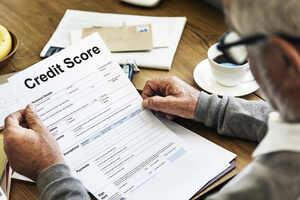If your finances are wrecked due to a drug or alcohol addiction, don’t despair. This guide will help you learn about steps you can take to get back on track.
Prioritizing Your Sobriety
 A substance addiction negatively impacts many areas of life—including finances. The costs associated with your substance abuse are usually very high (e.g. buying the substance, paraphernalia, and other drugs to help deal with withdrawal or side effects of the substance), and treatment can be expensive too.
A substance addiction negatively impacts many areas of life—including finances. The costs associated with your substance abuse are usually very high (e.g. buying the substance, paraphernalia, and other drugs to help deal with withdrawal or side effects of the substance), and treatment can be expensive too.
So, if you are currently in recovery, it’s natural to worry about how to get your finances in order. What’s worse is that being hounded by debt collectors or stressing over how you are going to pay your bills could very well lead to a relapse, thus restarting the cycle of drug abuse and excessive spending. That is why it is so important to appropriately manage stress and other negative emotions during this time. Your sobriety is always the number one priority. Recovery from drugs and alcohol allows you to focus on repairing the other parts of your life that were damaged by addiction.
A few healthy stress-management practices include:1
- Tracking stress and identifying the source.
- Deep breathing exercises.
- Yoga.
- Physical exercise.
- Mindfulness and meditation.
- Enjoyable or relaxing activities, such as reading, painting, playing an instrument, surfing, hiking, etc.
It is also essential to participate in ongoing peer support groups, such as Alcoholics Anonymous (AA), Narcotics Anonymous (NA), SMART Recovery, and Secular Organizations for Sobriety (SOS Recovery), during this time. Such support is critical to preventing relapse while you find a way to manage your financial situation.
Although there is no magic bullet to fix your finances, many options are available.
View Your Credit
One of the easiest things you can do to get a handle on your finances is view your credit report. Your credit report includes your:
- Demographic and employment information.
- Credit history.
- Civil judgments.
- Bankruptcies.
- Any other related information.
Companies and employers typically use your credit information to evaluate applications for things like insurance, employment, credit, and housing.2
 The information from your credit report is translated into your credit score. This score is used by companies to determine the risk associated with granting you credit. Your credit score may influence whether you will be given a policy and on what terms. A low credit score typically means that you’ll be less likely to receive insurance or credit, and if you do, you’ll pay more for it. The vice versa is true as well.3
The information from your credit report is translated into your credit score. This score is used by companies to determine the risk associated with granting you credit. Your credit score may influence whether you will be given a policy and on what terms. A low credit score typically means that you’ll be less likely to receive insurance or credit, and if you do, you’ll pay more for it. The vice versa is true as well.3
Your credit history is an essential factor in determining your credit score, which can impact whether or not you are hired for a job, given a loan for a car, or able to get an apartment. Therefore, it is imperative to ensure that everything in your credit report is accurate.
The Federal Trade Commission recently completed its 5th national survey on the accuracy of credit reports. It found that one out of five people had at least one major error in their credit report. The good news is that you can dispute any errors in your credit report. If the information is incorrect, contact the credit reporting agency to correct it.2
It is easy to check your credit report, and it doesn’t take much time at all. You can check your credit from all three major credit reporting agencies—Experian, Transunion, and Equifax—for free.2
Most of these websites provide instructions on the dispute process. Disputing incorrect information on your credit report and fixing errors is a simple way to improve your credit and credit score.2
Finding a Mentor & Creating a Budget
If you’re worried about managing your money and getting back on track after completing an addiction treatment program, it can be beneficial for you to consider the following additional options for improving your financial situation:4,5,6
- Find a financial mentor: It can be helpful to treat your finances like a career and find a mentor. You don’t need to hire a financial advisor—perhaps find someone in your family or a close friend who has experience in managing finances. Make sure that it is someone you trust. They can help guide you as you begin repairing your finances. They can help you set a budget of monthly expenses and how best to set aside money for each one—perhaps by opening up a savings account. You can also set up auto-pay to make sure you don’t get any late fees for bills. Having a financial mentor can be helpful, especially if you feel overwhelmed by the stress of dealing with financial matters.
- Develop a budget: A budget is a beneficial financial tool that can help you keep track of your expenses and bills. You start by listing your income for each month, then you fixed costs, such as rent and phone bill, and then your variable costs, such entertainment and groceries. Once you do this, you can calculate whether you can realistically make ends meet, as well as how much money you will have leftover each month. There are many free budgeting apps you can use to create and maintain a budget, such as Mint.com and BudgetEase. For more information and a comparison of the apps, visit the Corporation for National and Community Service website.
If you attend meetings through a recovery support group, you may want to ask fellow members how they worked on fixing their financial situation once they began on the road to recovery. It may be helpful for you to get advice from people who have had similar experiences as you. Of course, money can be a sensitive topic for many people, so make sure that you approach someone privately and respectfully.
Vocational Programs
 Like many people who are in recovery, you may have lost your job due to the consequences of your past substance abuse. However, there are a variety of vocational programs designed specifically to help people who are recovering from a drug or alcohol addiction find employment. Finding a good job can help you work toward getting a handle on your financial troubles. Plus, work can help you feel like a productive member of society. Not only will employment help rectify your financial situation, but it will also help to promote emotional and physical recovery from a substance use disorder. Furthermore, working also offers an individual the opportunity to develop sober social skills and to make new, sober friends.7
Like many people who are in recovery, you may have lost your job due to the consequences of your past substance abuse. However, there are a variety of vocational programs designed specifically to help people who are recovering from a drug or alcohol addiction find employment. Finding a good job can help you work toward getting a handle on your financial troubles. Plus, work can help you feel like a productive member of society. Not only will employment help rectify your financial situation, but it will also help to promote emotional and physical recovery from a substance use disorder. Furthermore, working also offers an individual the opportunity to develop sober social skills and to make new, sober friends.7
True Link Prepaid Visa Card
The True Link Prepaid Visa Card is a reloadable prepaid Visa card created specifically for those in recovery. This card allows you to manage your spending and make everyday purchases. Your family members and friends can provide you with funds on the True Link Prepaid Visa Card in a safe, secure fashion. This allows you to purchase the items you need and pay bills without carrying around cash that may tempt you to buy alcohol or drugs.8
The True Link Prepaid Visa Card can be set up to block purchases in bars, online, and other risky places. You can also set up the card to be used only at certain merchants. The card also includes access to real-time alerts to be sent to your loved ones who provide you with money if you attempt to use this card at a blocked location, such as a liquor store. For more information, check out True Link’s website.8
Filing Bankruptcy
Bankruptcy helps people who have serious debt get a fresh financial start. Filing bankruptcy can help a person eliminate certain types of debt or plan to repay debts. The types of debt that bankruptcy can help with include:
- Medical Bills.
- Credit card debt.
- Personal payday loans.
 There are several different types or chapters of bankruptcy. The exact type depends on your financial situation, but generally speaking, most individuals looking to file will qualify for Chapter 7 bankruptcy.9
There are several different types or chapters of bankruptcy. The exact type depends on your financial situation, but generally speaking, most individuals looking to file will qualify for Chapter 7 bankruptcy.9
To file for bankruptcy, you’ll need to take a government-approved credit counseling course within 180 days before you file. This course includes creating a personal budget plan, discussing alternatives to bankruptcy, and assessing your individual financial situation. For more information about this requirement, check out the Federal Trade Commission’s website.10
After you complete the pre-bankruptcy credit counseling course, you should contact an experienced bankruptcy attorney for help filing your bankruptcy petition. Bankruptcy is complicated and has long-term legal and financial ramifications. A lawyer can help you understand what the best solution is for your financial situation.9 If you qualify and are unable to afford an attorney, you might be able to receive free legal services from the American Bar Association or the Legal Services Corporation. Please visit the United States Federal Bankruptcy Court website for more information.9
Once you file for bankruptcy, you have to take a debt education course that is approved by the U.S. Trustee program. This class teaches you to manage money, use credit wisely, and develop a budget.10
Filing for bankruptcy may seem overwhelming at first, but it can be very beneficial for someone who has accrued major debt due to drug and alcohol abuse and addiction treatment costs.
Getting Your Financial Life Back on Track
Getting your financial life on track after addiction is possible. Although you might feel overwhelmed or unsure now, there are steps that you can take to achieve financial freedom and stay on the path to recovery. There are several different options for you to choose when it comes to fixing your finances; don’t be afraid to reach out to loved ones or professionals for help.
Sources
-
1. U.S. Department of Veterans Affairs. (2014). Manage stress workbook.
2. Federal Trade Commission. (2013). It pays to check your credit report.
3. Federal Trade Commission. (2013). Credit scores.
4. Federal Trade Commission. (2012). Coping with debt.
5. NationalService.gov. (2018). Budgeting apps.
6. Federal Trade Commission. (2014). It’s never too early — or too late — to save.
7. Center for Substance Abuse Treatment. (2000). Integrating substance abuse treatment and vocational services: Treatment improvement protocol (TIP) series, No. 38. Chapter 1—The need for vocational services. Rockville MD: Substance Abuse and Mental Health Services Administration.
8. TrueLink Financial. (2018). Give and manage money with the True Link Prepaid Visa® Card.
9. United States Courts. (2018). Bankruptcy.
10. Federal Trade Commission. (2012). Filing for bankruptcy: What to know.
